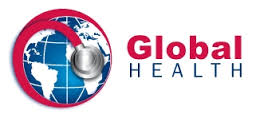PhD Positions in Philosophy
at Durham University (Deadline: January 12, 2015)
The Department of Philosophy
at Durham University and Centre for Humanities Engaging Science and
Society (CHESS) are inviting
applications for full-time, three-year PhD studentships in philosophy of
the natural, social and
policy sciences, starting in October, 2015. Suitable candidates should have a
Masters degree (with merit
or distinction) or equivalent, an interest in ʻscience and policyʼ and are
expected to work in one of
the six areas below. We are especially interested in work on these topics that
interfaces with climate
science, medicine, economics and other social sciences, and social policy.
1. Evidence, conviction,
endeavour
The nature of scientific
evidence; evidence-based medicine; evidence-based social policy;
hierarchies of evidence;
non-randomised and randomised experiments; theory and practice of
measurement.
2. Expertise
The nature of scientific
expertise; problems of legitimacy and extension; experts in democracy;
experts versus mechanical
objectivity; the nature of tacit knowledge.
3. Moral and social order
Visions of well-ordered and
disordered, decent and indecent societies; strategies of creating and
maintaining order in
society; the nature and role of institutions; justifying economic systems;
studies of specific cases
4. Narratives, modelling and
representation
Models and representation in
science; representation in art versus representation in the sciences;
literary methods and thought
experiments in the sciences and humanities; narratives as
evidence; understanding and
narratives.
5. Modality and power
Causality and causal powers;
theories of causation; causal inference; counterfactuals.
6. Values in science and
policy
What role values play and
why; whose values and who decides; well-ordered science; areas of
special concern, e.g.
genetic engineering, human subject research, politically sensitive issues
where scientific results
matter.
Primary supervisors of PhD
dissertations will be CHESS directors Professors Nancy Cartwright, Julian
Reiss, associate director Dr
Wendy Parker or Professor Alison Wylie. Successful candidates are
expected to contribute to
the research environment at the Centre. Complete applications have to be
received by January 12,
2015. These Durham Doctoral Studentships are awarded by the Faculty of
Arts & Humanities after
candidates have been nominated by the Philosophy Department and CHESS.
Ahead of applying for a post
through the university online system (available at: http://www.dur.ac.uk/postgraduate/apply/) candidates should discuss their research proposal with a
member of CHESS.




